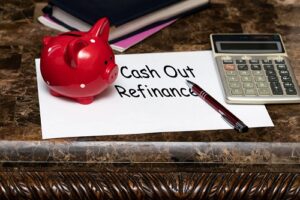
Commercial cash-out refinancing gives property investors access to the equity tied up in their commercial real estate. Instead of selling, investors can refinance to tap into that value and put it to work—whether for property improvements, new acquisitions, or other business opportunities.
What Is a Commercial Cash-Out Refinancing?
A commercial cash-out refinance loan on an investment property is overridden with a new one that has a higher principal balance. The balance between the new and old loan amounts—the “cash-out”—is paid to the investor.
This allows investors to access liquidity while retaining ownership of their income-producing property, which can continue to appreciate and generate rental income.
How Does It Work?
The process typically follows these steps:
1. The property has built-up equity that the investor wishes to access.
2. The investor secures a new loan, often up to 75–80% of the property’s current appraised value.
3. The new loan pays off the existing mortgage.
4. The remaining balance (the equity) is disbursed to the investor.
5. The investor can then use these funds for almost any business-related purpose.
By refinancing rather than selling, investors keep their asset while gaining access to capital that would otherwise remain locked in the property.
Key Features of Commercial Cash-Out Refinancing
While details vary by lender, common features include:
- Equity Requirements: Typically requires at least 30–40% equity before refinancing.
- Loan-to-Value (LTV): Most lenders cap LTV at 75–80%.
- Debt Service Coverage Ratio (DSCR): Generally must be between 1.2 and 1.5.
- Fees and Costs: Expect lender fees of 1–3% and closing costs of 2–5%. Prepayment penalties may also apply.
- Loan Terms: Usually 15–30 years, similar to a traditional commercial mortgage.
- Processing Time: Refinancing can take 30–45 days, depending on property type and underwriting.
Benefits of a Commercial Cash-Out Refinance
Refinancing can help investors make the most of their portfolio in several ways:
- Gain liquidity without selling the property.
- Reinvest capital in new properties or business ventures.
- Improve properties to increase their long-term value.
- Potentially reduce tax obligations compared to selling.
- Take advantage of lower interest rates when the market allows.
Potential Drawbacks
As with any financial strategy, there are factors to consider:
- Upfront costs, including closing fees and lender charges.
- Possible prepayment penalties on the current loan.
- Less favorable loan terms if interest rates have risen.
- Not all commercial properties or borrowers will qualify.
Cash-Out Refinance vs. Selling
Both cash-out refinancing and selling allow investors to unlock equity, but they serve different goals.
Selling provides immediate access to all equity and eliminates future management responsibilities. However, it can trigger capital gains taxes and ends any potential appreciation.
Refinancing, on the other hand, lets investors maintain ownership and continue benefiting from rental income and appreciation—while still accessing the property’s value. The funds from a refinance can often be used tax-efficiently for reinvestment or property improvements.
Is a Commercial Cash-Out Refinance Right for You?
If you own commercial property with substantial equity, a cash-out refinance can be a strategic way to increase liquidity without losing ownership. It can help you grow your portfolio, strengthen your balance sheet, or simply gain financial flexibility.
Ready to explore your commercial cash-out refinancing options? Contact FinanceBoston, Inc. today to learn how we can help you unlock the equity in your property and achieve your investment goals.
FinanceBoston, Inc.
33 Broad Street
Boston, MA 02109
617-861-2041
https://financeboston.com/


No comments:
Post a Comment